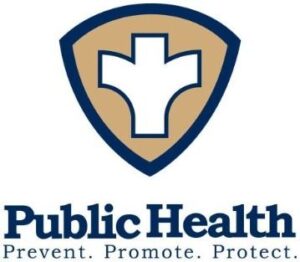Who is a member?
Our members are the local governments of Massachusetts and their elected and appointed leadership.
MMA Innovation Award winner, From The Beacon, February 2024

The shared public health services partnership between Wakefield and Melrose has expanded to include Stoneham.
The neighboring communities of Wakefield and Melrose, which have shared public health resources for 15 years, have now added Stoneham to their partnership, expanding the reach of services and realizing savings for taxpayers.
Stoneham joined the regional health agreement in January 2023. Officials involved in the arrangement said it has resulted in the delivery of more uniform services in the three communities, positioned them better to assist each other during emergencies, and enabled them to submit more competitive funding applications.
“When you do regionalization and you do it right, you end up with a combination of reducing costs to your taxpayers and to your community, increasing efficiency, and increasing the ability to maximize grant funds,” said Wakefield Town Administrator Stephen Maio.
The three communities already had a good working relationship, Maio said, and their residents face common societal issues that adversely affect physical and mental health, including drug abuse, school bullying and violence, and loneliness that was exacerbated by the COVID pandemic. Even with more routine matters such as inspections, he said, the communities will benefit from a more consistent approach to the work.
Under the agreement, the three communities share a health director, a senior environmental health specialist and a senior public health nurse, and each municipality has its own internal employees. The communities also share in the use of a complaint tracking system to gauge progress.
Now, Melrose pays for 40% of the tri-community services and employs the shared workers, while Wakefield and Stoneham each pay 30%. For the current fiscal year, Wakefield is paying a total of $336,000 to cover both its share of the regionalized services and its internal health staff, Maio said. Without the regional agreement, he said, Wakefield would likely need to spend $50,000 more to maintain comparable services.
Before merging, the communities studied staffing levels in Stoneham and conducted a needs assessment, which showed that it would be beneficial to add Stoneham to the regionalized department. They also established a strategic plan and metrics for success to identify areas for improvement and ways to address them.
Stoneham Town Administrator Dennis Sheehan said the pandemic highlighted the importance of local health departments, and the need to provide greater continuity in the face of labor market challenges. He said the regional partnership has proven successful for Stoneham, which has five of its own health employees.
“Limited staffing levels and employee turnover created a unique set of challenges for Stoneham’s small Health Department,” he said. “By entering into an existing regional partnership, the town of Stoneham was able to access a wider variety of skill sets, while also providing an additional level of redundancy during periods of staff turnover.”
Maio said the three communities have already collaborated on several community health-related grants, and received a $1 million STOP School Violence grant. He said the STOP funds will help with public outreach, and allow for more counselors in the schools.
The regionalization has also allowed the communities to maximize money received through opioid abatement funding, a grant through the Public Health Excellence Shared Services program, and a Drug-Free Communities grant. The towns have been able to expand substance use prevention programs and services as a result, said Maio, who wants to see the communities pursue additional grants to expand services.
“I think the bottom line is that we’ve gotten greater health care for the whole region with our three communities being together,” Maio said.
For more information about the three communities’ public health collaboration, contact Wakefield Town Administrator Stephen Maio at smaio@wakefield.ma.us.